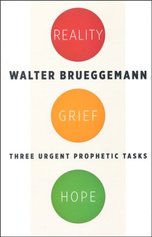
Friendliness tends to focus is on my own behavior. Am I smiling? Do I approach the person, share a story, make them laugh? None of these behaviors are bad. Friendliness is a great quality. Friendliness can also tend to keep interactions on a surface level. We settle for a quick, “Have a nice day.” or “How are you?” “What’s new?” without really waiting for an answer.
Hospitality is very different. It is not about me but about the other person. What does he need? What will make her more comfortable and feel welcomed? This is true for family and friends as well as strangers.
The book Radical Hospitality: Benedict’s Way of Love by Father Daniel Homan, OSB and Lonni Collins Pratt, describes the first step in hospitality this way: Listen. One must open their ears and their heart and listen for wisdom. “Ultimately, hospitality is not about the table you set or the driveway you plow. Hospitality is about preparing the holiest of holies. It is about the heart you make ready. Yours.”
This means that hospitality begins before we even interact with someone else. How am I ready to be with you? That is much different than simple friendliness.
I realized the difference for myself as we were talking about sharing the peace. This is the part of the worship service where prompted by the minister who says, “The peace of the Lord be with you.” And the congregation responds, “And also with you.” For my congregation, this is close to a contact sport. Adults and children alike leave their pew and cross the aisle, shaking hands with many people. This raises both the energy and noise level in the room. There tends to be a traffic jam of people in the middle of the sanctuary. Many people find this invigorating. We have some older folks though who are not confident to join the mix. They may be a bit wobbly or introverted or hard of hearing.
There are two older men who I have noticed do not leave their spot during the sharing of the peace. I go seek them out. I have learned to slow down and lower my own energy level as I approach them. I reach out my hand and give a gentle warm handshake. I block out all the other noise, look them in the eye and gently share the peace. The look in their face is filled with gratitude. I have met them where they are. I have changed my own behavior to greet them in a way that is meaningful for them. I paid attention to the other person and saw what they needed.
That is hospitality! Noticing how my own behavior can limit an interaction and then adapting so that both people than connect authentically.
Friendliness is good. It can be warm and convey value in the moment. Hospitality is about more than the moment. It has the power to deepen relationships.
Hospitality involves risk. What if I make myself vulnerable and open and the other person just blows me off? It is a risky business to be open so that a relationship can deepen. While friendliness is important, we are not called to be friendly. We are called to risk: touch the leper, eat with the outcast, talk to the outsider, and follow the one who was killed for those same behaviors.
~ Pam



